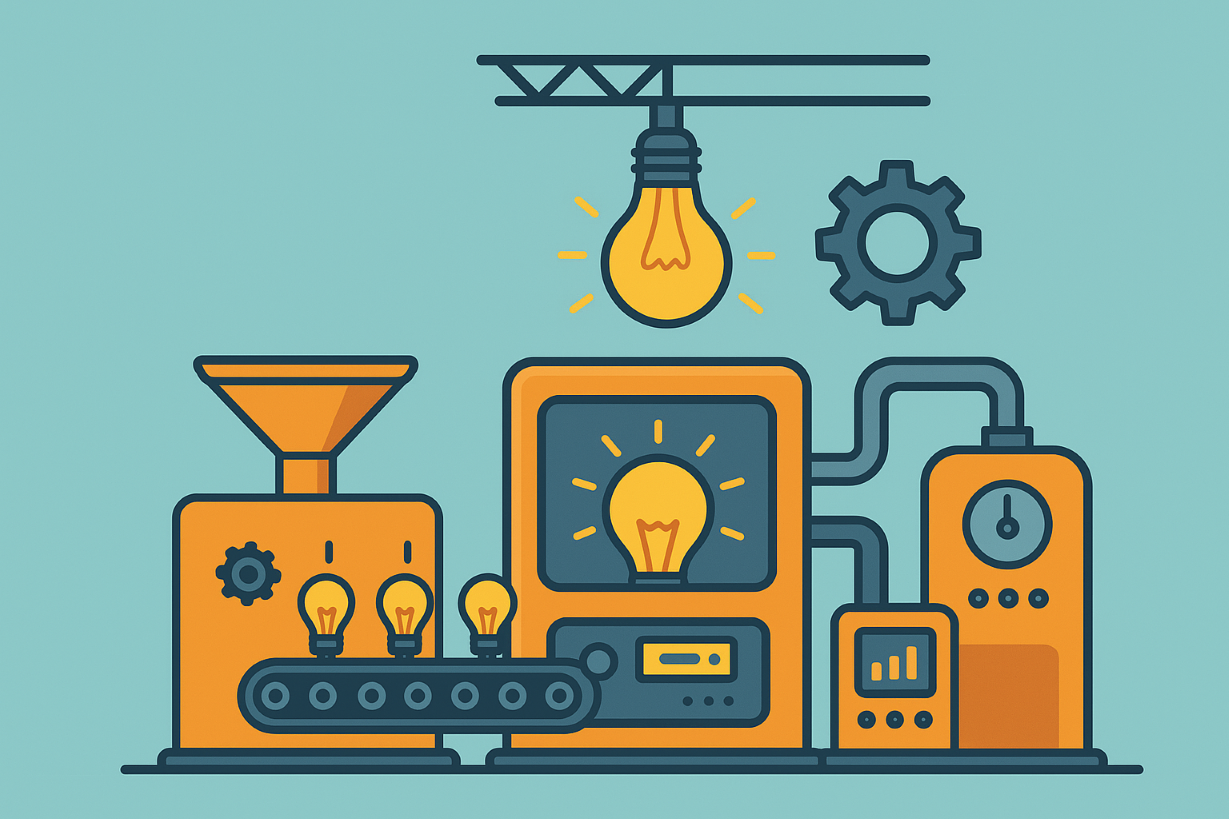Frictionless Coding and the Dawn of IP Factories
What is Frictionless Coding?
Frictionless coding platforms use Artificial Intelligence (AI) and natural language processing (NLP) to help coders and non-coders alike build applications through conversational prompts.
Tools powered by AI are fundamentally changing who can build software. What once required years of programming expertise and a team of skilled developers can now be accomplished by creative individuals with domain knowledge and a clear vision – or really anyone who can describe their idea in natural language. These aren’t only simple applications. Companies are using these tools to accelerate complex infrastructure development, cloud-layer innovations, and sophisticated workflows. Traditional impediments to development, such as countless hours of debugging, complex system architecture, orchestration, and the steep learning curves are rapidly dissolving
Subject matter experts who understand workflows, processes, and user needs no longer have to translate their vision through multiple layers of technical intermediaries and resource limitations. They can prototype, iterate, and implement directly themselves.
There are many AI programming tools which span no code and low code for beginners to coding assistants for skilled developers. For example, tools like Lovable and Bolt are dubbed “vibe-coding” because users can build their ideas in natural language without interacting with the code. Whereas Cursor was originally developed for programmers and excels at debugging, customizing, and enhancing code. Replit, which provides an AI agent, is a helpful tool for mapping out an application before development. Non-coders can ideate their application in Replit, develop a prototype in Lovable and/or Bolt, many use them in tandem to curtail token limits, and then debug and bolster their program in Cursor. (Rebelo, 2025)
As of today, while these AI programming tools make work flows for coding more efficient, they haven’t yet replaced the need for traditional coding by humans. These tools are the most effective for building prototypes, MVP’s (minimum viable product), and some small to medium business apps. While they can assist programmers, they can not currently create highly complex, large-scale, security-critical, or performance-intensive systems on their own. However, these tools are improving rapidly and it is easier than ever to imagine a future in which AI can create complex and robust programs with minimal or no human input.
The Dawn of IP Factories
Thirty years ago, Bill Gates wrote about the idea of “friction-free capitalism,” predicting that the internet would eliminate barriers that prevented commerce from flowing freely. Just as Gates imagined, the online information highway carried us into a world of low-friction, low-overhead capitalism, in which market information is readily accessible and transaction costs sharply dropped. As a result, we witnessed the explosion of the digital marketplace that transformed the global economy. He aptly called it a “shopper’s heaven.” Today, the advantage of hindsight may trick us into reducing Gates’ prescience to an obvious, or even inevitable, shift, but we’re standing at the precipice of an equally transformative shift: We’re entering what we might call the “frictionless coding economy” — a parallel to the gig economy that emerged from frictionless online commerce, but potentially far more transformative. In this environment, value has fundamentally shifted from implementation to ideation.
When anyone can code, the scarcest resource is no longer programming ability — it’s creative insight that can be legally protected. Creativity has become the premium skill set precisely because the technical barriers to coding have been lowered for everyone. The real value now lies in innovative workflows that solve problems, creative approaches to user experience, novel combinations of existing capabilities, deep domain expertise that reveals hidden inefficiencies and informs better solutions, and perhaps most importantly, forward-thinking vision that anticipates market needs.
The frictionless coding economy is poised to create waves of innovation and IP generation that dwarf what we’ve seen before. As AI coding tools become more sophisticated and IP development becomes more streamlined, we expect to see an explosion of innovation from unexpected sources – domain experts who were previously blocked by technical barriers, creative individuals who can now implement their visions directly, and entrepreneurs who can move from idea to protected, market-ready solution at unprecedented speed.
What makes this technological cycle different from previous ones is the compound acceleration effect. The same AI revolution making coding frictionless is also streamlining the workflows for IP development. For example, patent applications can be drafted and filed faster than ever (See https://generativeiq.com/portfolio-item/patlytics/). The tools for protecting innovation are evolving as quickly as the tools for implementing it. This creates a compound acceleration effect: ideas can be conceived, prototyped, protected, and brought to market at unprecedented speed. The winners will be those who can orchestrate all these elements strategically and simultaneously, not sequentially.
When frictionless creativity meets strategic IP protection, the results can be exponential. Startups and founders can rapidly iterate upon and refine their ideas, while simultaneously working with GenerativeIQ to build legal moats around their innovations. This combination of speed and protection creates sustainable competitive advantages in ways that neither pure technical implementation nor unprotected creativity could achieve alone.
When is frictionless coding IP protectable?
Our next blog post, Is Frictionless Coding IP Protectable?, will address the circumstances when frictionless coding is IP protectable.
By Bob Steinberg, Jacob Levine
Edited By Sophie Steinberg
Bob Steinberg is the Founder of Generative IQ® LLC, a venture fund that provides capital to early-stage IP rich AI start-ups. He has been protecting and litigating IP rights, working with technology entities and entrepreneurs navigating the IP landscape and monetizing blocking rights for over 30 years.
Jacob Levine is a J.D. Candidate 2027 at Harvard Law School where he serves as a Project Director for the Harvard Law Entrepreneurship Project. He graduated from American University in 2022 in the Global Scholars Program with dual degrees in Computer Science and International Studies. Jacob enjoys playing basketball and jazz music, woodworking, weight training, and reading. He loves to go on backpacking excursions with family and friends and attend concerts.


